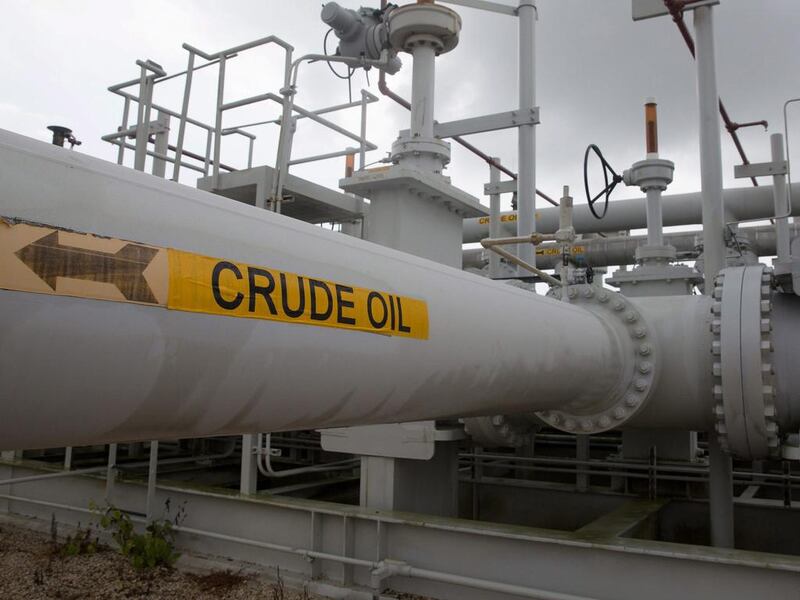Oil rose on Monday, putting July on track to become the strongest month this year, as news of a producers' technical meeting next week added to bullish sentiment driven by the threat of US sanctions against the Opec member Venezuela.
Oil traders also eyed the bullish impact from a production outage following a fire at Europe's largest refinery and further signs that the US market is tightening after heavy inventory falls and slower new oil rig additions last week.
"The sentiment in the oil market became very bullish after Opec said it will meet with partners in Abu Dhabi next week to discuss compliance," said Frank Schallenberger, the head of commodity research at LBBW.
Some Opec and non-Opec members will meet on Aug. 7-8 in Abu Dhabi to assess how the group can increase compliance with production cuts that began on Jan. 1.
Brent crude futures traded at US$52.56 a barrel at 08.27 GMT, up 4 cents on Friday's close. Prices hit $52.92 a barrel, their highest since May 25.
US West Texas Intermediate (WTI) futures after briefly topping $50 per barrel were at $49.72 a barrel, up 1 cent.
Hedge funds and money managers have raised bullish bets on US crude oil to their highest in three months, data showed on Friday.
The United States is considering imposing sanctions on Venezuela's oil sector in response to Sunday's election of a constitutional super-body, which Washington has denounced as a "sham" vote.
In Europe, a production outage at Shell's 404,000 barrel-per-day Pernis refinery in the Netherlands following a fire sent benchmark European diesel margins, which reflect the profit made from refining crude oil into the road fuel, to their highest since November 2015 at $14.60 per barrel.
US production has hampered efforts to rebalance the market but signs the market is tightening have emerged.
"Strong increases in the price of oil ... [were] fuelled in large part by the substantial drawdowns in US inventories over the past several weeks," said William O'Loughlin, an analyst at Rivkin Securities.
US crude inventories have fallen by 10 per cent from their March peaks to 483.4 million barrels.
US output dipped by 0.2 per cent to 9.41 million barrels per day (bpd) in the week to July 21, after rising by more than 10 per cent since mid-2016.
Drilling for new US production is also slowing, with just 10 rigs added in July, the fewest since May 2016.
* Reuters





